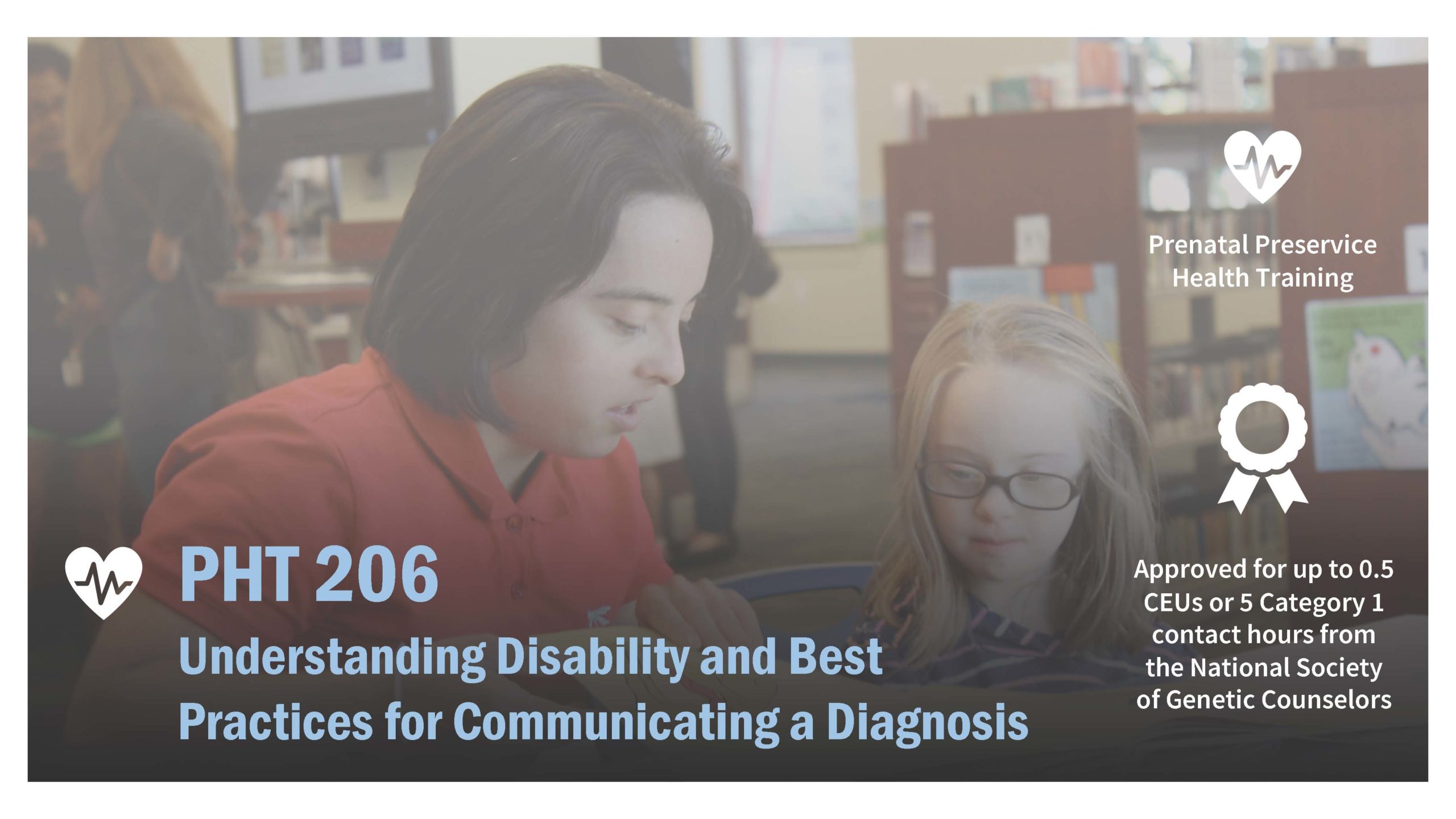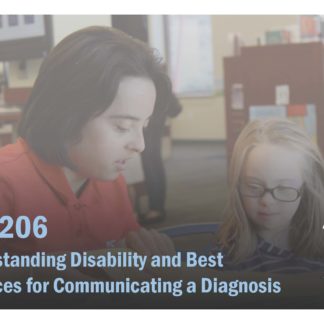PHT 206: Understanding Disability and Best Practices for Communicating a Diagnosis
$0.00
The overarching purpose is to give physicians tools to assess the administration of genetic screening and testing in the context of the disability rights movement, to recognize what constitutes balanced information, and to promote culturally competent practice and client-centered, informed, non- coercive and value-based decision-making.
ACCME Accreditation
This activity has been planned and implemented in accordance with the accreditation requirements and policies of the Accreditation Council for Continuing Medical Education (ACCME) through the joint providership of The American College of Obstetricians and Gynecologists and the University of Kentucky Human Development Institute. The American College of Obstetricians and Gynecologists is accredited by the ACCME to provide continuing medical education for physicians.
AMA PRA Category 1 Credit(s)™
The American College of Obstetricians and Gynecologists designates this enduring activity for a maximum of 5 AMA PRA Category 1 Credits.™ Physicians should claim only the credit commensurate with the extent of their participation in the activity.
College Cognate Credit(s)
The American College of Obstetricians and Gynecologists designates this enduring activity for a maximum of 5 Category 1 College Cognate Credits. The College has a reciprocity agreement with the AMA that allows AMA PRA Category 1 Credits™ to be equivalent to College Cognate Credits.


